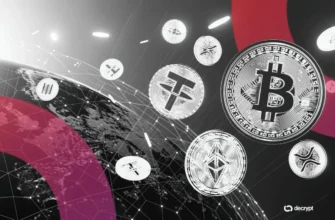
Shortly
- Vitalik Buterin proposes to replace EVM with new system in order to gain radical efficiency improvements for zero-knowledgeproofs.
- A four-phase transition is expected to deliver performance gains of 100x while maintaining backwards compatibility.
- The plan aims to simplify Ethereum's codebase to Bitcoin-like levels despite issues with complexity.
Ethereum co-founder Vitalik Buterin has proposed replacing Ethereum's Virtual Machine (EVM) with RISC-V, aiming to boost the chain's performance while making it simpler in the process.
Buterin, in a May 3 blog post, claimed that through the proposed changes, Ethereum could "become close to as simple as Bitcoin" within five years.
"One of the best things about Bitcoin is how Simply stunning the protocol is," Buterin wrote, describing how Bitcoin transactions and Proofs of work.
Keeping the protocol simple brings benefits that are key to making it "a credibly neutral and globally trusted base layer," Buterin wrote.
RISC-V versus EVM
Transition to RISC-V Open-source instructions would define how software interacts with processors.
The change will make Ethereum faster because it eliminates extra translation steps. The applications could be run directly on the execution layerThe potential to make some operations 100 times faster and keep existing Smart Contracts working.
In contrast, the Ethereum Virtual Machine The (EVM), which is a custom-built protocol for Ethereum, must be translated into other formats before it can work. This slows down the process.
RISC-V, meanwhile, can handle operations directly and is "simpler to reason about,” potentially "increasing the number of people who understand and can participate in protocol research," Buterin claims.
If applied to Ethereum, RISC-V could also decrease "the cost of creating new infrastructure," reduce "long-term protocol maintenance costs," the "risk of catastrophic bugs," and minimize the "social attack surface" with fewer moving parts, Buterin explained.
Growing Pains
Buterin acknowledges that despite his ambitions, he has failed to improve Ethereum.
The network has often not done this "sometimes because of my own decisions," and not doing so has led to actions done "in pursuit of benefits that have proven illusory," he wrote.
Buterin's latest proposal could "break backward compatibility, demand massive developer retraining, and rely on immature tooling," Dominick John, an analyst at Kronos Research, told Decrypt.
Ethereum's governance also "requires broad consensus across fragmented stakeholders, a massive coordination challenge." John added.
Some see Ethereum as having potential beyond the current cryptocurrency. Value for money.
"Price isn't the scoreboard for technological maturity." Thad Pinakiewicz is a researcher with Galaxy. He wrote a Friday newsletter. "Ethereum isn't failing because the price is flat. It's succeeding because it's laying down infrastructure others are copying."
Sebastian Sinclair edited the book


